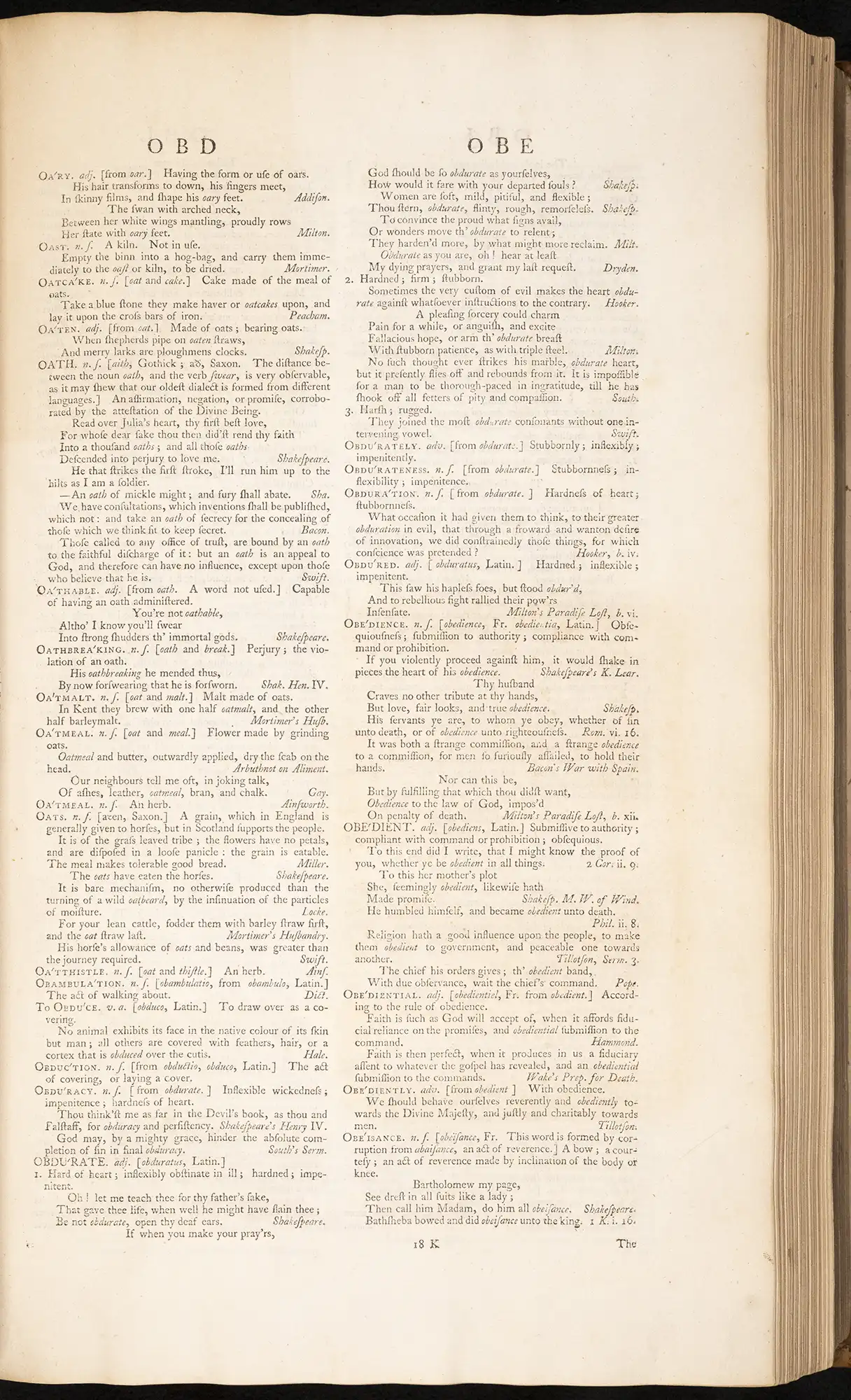
Samuel Johnson. A dictionary of the English language. London: Printed by W. Strahan, for J. and P. Knapton; T. and T. Longman; C. Hitch and L. Hawes; A. Millar; and R. and J. Dodsley, 1755. Two volumes; Vol. 2 displayed.
A.H. Reed greatly admired the 18th century lexicographer and literary wit Samuel Johnson, who after many years of lonely pedantic labour, completed in 1755 what is considered the first authoritative English dictionary. Johnson’s aim was not only to standardise spelling and give meaning to words, but he also supplied quotes from the best literature to demonstrate how words may be used. Far from being dry and impersonal, many definitions show signs of Johnson’s personal biases and renowned sense of humour. He later admitted that his definition of Oats was purposefully meant to ‘vex’ the Scots. Johnson’s friend and biographer James Boswell later wrote that “it was pleasant to me to find that oats, the food of horses, were so much used as the food of the people in Dr Johnson’s own town.”
A copy of the sixth edition of 1778 came with Reed’s original 1948 donation, but the first edition on display here was purchased by Reed in December 1955 from a dealer in Preston, Lancashire, to mark the bicentennial of the first printing of Johnson’s Dictionary.